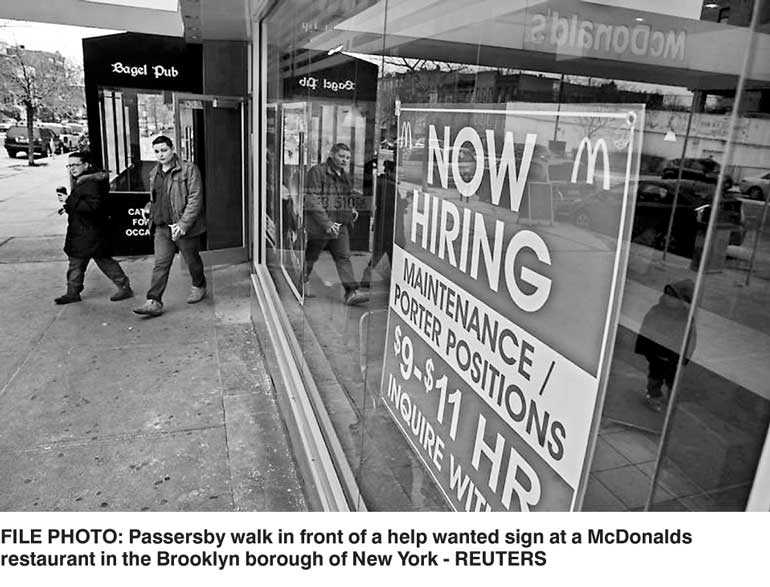Tuesday Feb 24, 2026
Tuesday Feb 24, 2026
Saturday, 20 October 2018 00:10 - - {{hitsCtrl.values.hits}}

WASHINGTON (Reuters): New applications for US unemployment benefits dropped last week and the number of Americans on jobless rolls fell back to levels last seen in 1973, suggesting a further tightening in labour market conditions.
The labour market strength was also underscored by another report on Thursday from the Philadelphia Federal Reserve showing manufacturers in the mid-Atlantic region boosting employment and increasing hours for workers in October.
That, together with a robust economy likely keep the Federal Reserve on course to increase interest rates again in December. The US central bank raised rates in September for the third time this year and removed the reference to monetary policy remaining “accommodative.”
“The labour market is tight by any quantitative metric and companies are holding on to labour because of the difficulty of replacing workers,” said John Ryding, chief economist at RDQ Economics in New York.
Initial claims for state unemployment benefits decreased 5,000 to a seasonally adjusted 210,000 for the week ended Oct. 13, the Labour Department said. Claims fell to 202,000 during the week ended Sept. 15, which was the lowest level since November 1969.
Economists polled by Reuters had forecast claims slipping to 212,000 in the latest week. The Labour Department said claims for South and North Carolina continued to be affected by Hurricane Florence, which drenched the region in mid-September. Claims for Florida were impacted by Hurricane Michael.
The four-week moving average of initial claims, considered a better measure of labour market trends as it irons out week-to-week volatility, rose 2,000 to 211,750 last week.
The claims data covered the survey period for the nonfarm payrolls component of October’s employment report. While the four-week moving average of claims rose 5,750 between the September and October survey periods, that did not change expectations for a rebound in job growth this month after Florence depressed restaurant and retail payrolls in September.